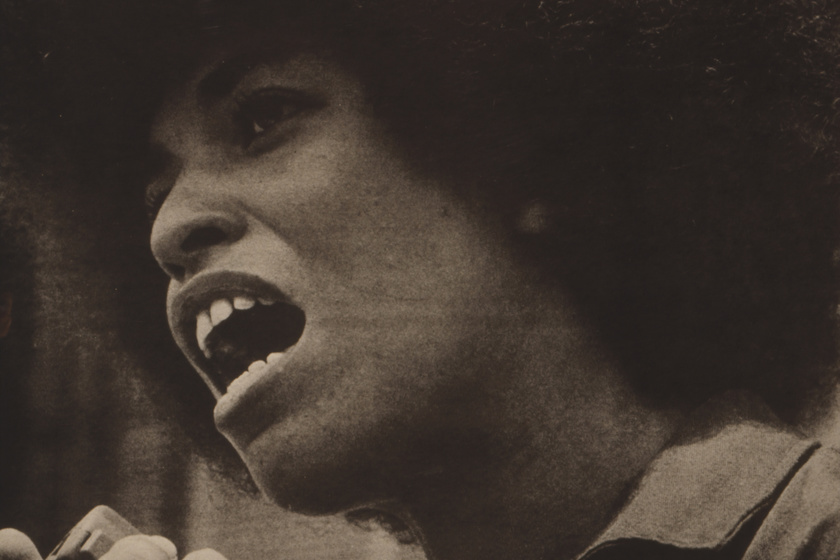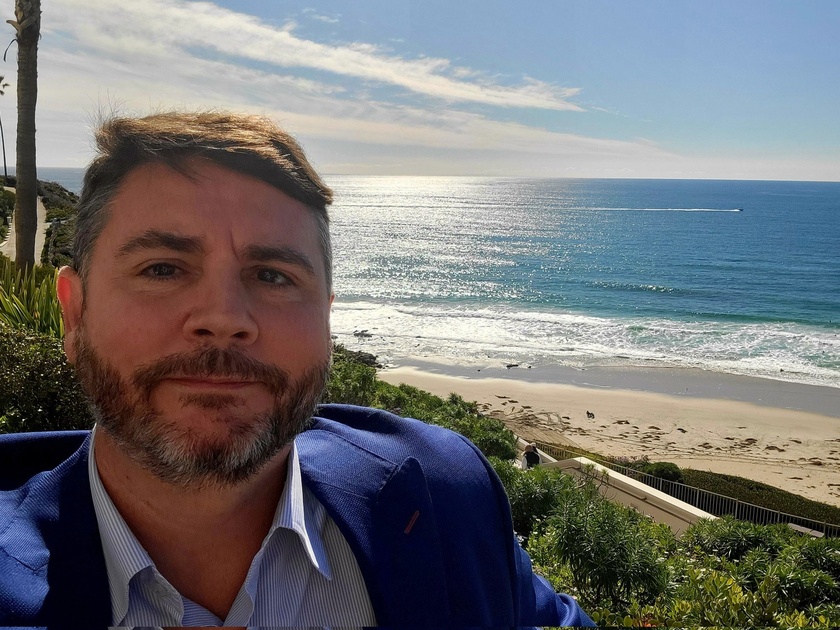As a theory of “political economy,” Marxism isn’t at all complicated. At the very bottom, it is the belief that human beings are fundamentally social beings whose true nature shapes and is shaped by their societies. Off this, Marxism boils down to two essential beliefs about people and society. Those are
- The Division of Society Through Private Property: Some people illegitimately declared themselves the exclusive possessors of some special kind of private property and order society and its supporting ideological narratives to justify their claim on this property now and into the future; and
- A Dynamic Relationship Between “Praxis” and Its “Inversion”: People—especially those with access to structural power—can shape society as a matter of continually becoming what it is and will be (called “praxis”), and in turn structural power in society shapes the people who live within it (called “the inversion of praxis”). Phrased otherwise: Man makes Society makes Man makes Society… in an endless loop of praxis and inversion of praxis.
That’s how Marxism understands society. Basically, certain people create systemic (or structural) injustice by granting themselves exclusive access to a special form of private property and using it to shape society to their own persistent benefit, including by arranging systems and the narratives surrounding them to brainwash people into accepting this unjust state of affairs. This arrangement becomes the fundamental organizing principle of society until such time as it is overthrown from its conscious margins in societal revolution, according to Marxist thought.
That word “conscious” is the key term because Marxists believe that humans are making society and thus themselves no matter what. They’re always doing praxis, and the inversion of praxis is always occurring. Society and mankind are always becoming what they have been, are, and will be, whether we’re conscious of the trajectory of it or not. Marxism bills itself as the first true scientific study of History, which claims to reveal the true causes of the unfolding of society and thus man historically, by which is meant through his entire past, present, and future. Hitherto, one might say, this process has largely happened blindly, by people unconscious of the Scientific Socialism, as Marx called it, but that doesn’t need to stay the case. We can consciously seize the means of production of society and consciously direct it where it’s meant to go.
For Marxists, whoever has control over the capacity to do meaningful praxis in the world can shape society, which in turn shapes mankind. That’s, in fact, what makes us human, except that oppression is inherently dehumanizing, so we’re all estranged from our true nature until all structural dehumanization is brought to an end. Communism, writes Karl Marx, as the “positive transcendence of private property as human self-estrangement” and as “the abolition of private property” is the only possible answer to the end of all dehumanizing structures, by which we remember who we really are as human beings—Communists. The people who would benefit least from this transformation of society have arranged things so that they can’t possibly see it, and the people who would benefit most from it have been conditioned (through narrative, ideology, and the inversion of praxis) to accept those terms as “just how it is” or to be too marginalized, divided, and disenfranchised to do meaningful praxis.
Marxism isn’t just a descriptive theory of political economy, then. The point isn’t merely to understand society, explained Karl Marx, but to change it. As a theory of consciousness—which in this case means gnosis—Marxism is a program with two other essential beliefs about what to do with their beliefs about the organization of society at the level of its fundamental organization. Those are
- Historical Purpose (Telos): History has a purpose and a trajectory, and it is people’s role in life to realize this purpose and direct it to its (teleologically) intended endpoint; and
- Class Conscientization: People, especially those who directly experience the oppression, estrangement, and alienation of this unjust arrangement in society, can be awakened to it being the fundamental organization of society, which was historically derived and is malleable by understanding and seizing the means of the production of society, i.e., of the inversion of praxis, which is effected not so much by individuals but by the class in which they are situated.
In short, Marxism posits that those excluded from the special form of property are disenfranchised from the capacity to do praxis to shape society to their betterment (and, in fact, emancipation from the structural injustice imposed upon them). The privileged have structured society to reinforce their own worldview and principles from every dimension, so they naturally operate as though they are a conscious class even though they are not. Their imposition of “structural reality” and the ideology that seeks to justify it prevents the oppressed underclass from being able to realize that they could band together as a class to do meaningful praxis and transform the system to one that is more just and equitable.
Speaking religiously, as an aside, what Marx proposed is that the real Fall of Man and ejection from the Garden of Eden was self-imposed by taking up “knowledge” of the ownership of private property. This, in turn, created the division of labor and thus, through the inversion of praxis, the division of Man. Man sundered himself from himself, each other, nature, his true nature in this Fall. Marxism is therefore a “theory” (technically, it’s an anthroposophy or, depending on one’s perspective, a theosophy) for how Man can remember who he really is (a socialist), undo the Fall (the division of labor created by the belief in private property), and return to the Garden on his own terms.
There’s nothing particular about economic material production that defines the essence of Marxism, then. Karl Marx, for reasons we might speculate about, believed that one’s material economic conditions are the overwhelming primary determiner of one’s person and character through the inversion of praxis. In other words, it is one’s material and economic conditions that “make Man” and estrange him from his true social nature, which is Communist. Classical Marxism therefore becomes a matter of teaching the disenfranchised workers, who are marginalized and exploited in the unjust system of capitalism, to realize how things really work, seize the means of economic and material production (like factories and farms), and then use that to control the means of societal and human production, consciously and in line with Marxist anthroposophy about the purposed endpoint of society, which is Global Communism. In other words, there’s no reason that other types of exclusive or private property than capital might not be plugged into this political economy machine and spit out another fully formed Communist theory. This allows Marxist Theory to mutate according to need in whatever society it finds itself in, depending on where the biggest levers of power against that society might reside.
Take race, for example. If one assumes, as did Cheryl I. Harris in 1993, that “whiteness” defines a special form of property that certain people (“whites”) can treat as exclusive, a complete Marxist theory of race can drop out of the political economy machine. They call it “Critical Race Theory,” and, for reasons that are about to be perfectly clear, I call it “Race Marxism.” Here’s how it works, comparing against classical Marxism with a forward slash between the concepts.
Some people (whites/capitalists) unjustly declare themselves the exclusive possessors of a special form of private property (whiteness/capital), thereby divide society into those who have it and those who don’t, and begin to arrange society such that the power granted through that access increases for those people over time. Those excluded from the resource and thus power by this declaration (people of color/workers) are thereby exploited for their productive capacity that is then turned into surplus value (cultural property/profit) for the advantaged class. Not only are the exploited thereby robbed of what they produce (cultural property/labor value), but they are estranged from who they really are (valid representatives of a culture/producers). More specifically, the product of their work (cultural production/labor) is subsumed into the privileged class (becomes part of white culture/is turned into profit), leaving the exploited (people of color/worker) impoverished (culturally/materially) and unable to recognize himself for who he really is (say, authentically Black/a producer). All this is enabled by the privileged class structuring society at its most fundamental levels for their own benefit (structural or systemic racism/structural classism), justified by the privileged class promulgating an ideology that it’s how things are supposed to be (white supremacy/capitalism and meritocracy). People in this dynamic system can be awakened to the structural “realities” of their lives and become (race/class) conscious activists (antiracists/proletarians) who work to seize the means of production (cultural/material) of their society to make it more fair (equitable/socialist). Eventually, this will be generally understood as the right way to order a society and will, through their praxis inverting into the inversion of praxis and thus socially conditioning people to accept it, become spontaneously fair (socially just/communist).
This extends to other forms of property, construed more abstractly as not just material as in capital and land, but also as social, cultural, and even human capital. This allows for the instantaneous creation of the entire constellation of “Identity Marxist” theories of identity politics with virtually no work (which makes it funny how much work it has taken these people to devise this stuff). Again, technically none of these is a theory (they’re all anthroposophies and/or theosophies). Here’s a quick summary:
Marxism: The bourgeoisie claims access to a special form of property called capital. They create an ideology called capitalism (based on things like meritocracy) to justify this. This allows them to structure society with structural classism that advantages the bourgoisie and exploits, estranges, and disenfranchises the working class. People can be made aware of the Marxist theory of societal production and become class-conscious proletarians or a bourgeois vanguard operating in solidarity on their behalf. If they seize the means of production of society and Man, they will usher in socialism that will eventually ripen into Communism through the inversion of praxis.
Critical Race Theory: The whites (and their adjacents) claims access to a special form of property called whiteness. They create an ideology called white supremacy (based on things like meritocracy and racism) to justify this. This allows them to structure society with structural or systemic racism that advantages whites and exploits, estranges, and disenfranchises people of color. People can be made aware of the Critical Race theory of societal production and become race-conscious antiracists and/or “white allies” operating in solidarity on their behalf. If they seize the means of race-cultural production of society and Man, they will usher in racial equity that will eventually ripen into racial justice (a kind of social justice) through the inversion of praxis.
(Marxian) Feminism: Men claim access to a special form of property called maleness or masculinity. They create an ideology called male supremacy or hegemonic masculinity (based on things like meritocracy and sexism) to justify this. This allows them to structure society with patriarchy and structural or systemic sexism, enforced by misogyny, that advantages men and exploits, estranges, and disenfranchises women, as a class. People can be made aware of the (Marxian) feminist theory of societal production and become feminist-conscious feminists and/or “male allies” operating in solidarity on their behalf. If they seize the means of sex-cultural and material production of society and Man, they will usher in gender equity that will eventually ripen into feminist justice (a kind of social justice) through the inversion of praxis.
Queer Theory: Straight people whose “gender identity” and sex match (and those who pass as such) claim access to a special form of property called normalcy (by declaring themselves the normal ones and defining normalcy to mean like themselves). They create an ideology called normativity (e.g., heteronormativity and cisnormativity) to justify this. This allows them to structure society with structural or systemic homophobia and/or transphobia (or, generally, queer-phobia) that advantages the “normal” and exploits, estranges, and disenfranchises “queers” (anyone different, especially gays, lesbians, bisexuals, the gender non-conforming, transgenders, and the mentally ill). People can be made aware of the Queer Theory theory of societal production and become queer-conscious (“proud”) allies operating in solidarity on their behalf. If they seize the means of normative cultural production of society and Man, they will usher in gender, sexual, and sex equity that will eventually ripen into gender, sexual, and sex justice (a kind of social justice) through the inversion of praxis.
Disability Studies: The able-bodied claim access to a special form of property called “ability.” They create an ideology described from the outside as dis/ableism (based on a belief that it is generally better to be fully able-bodied than not, and further based in ideas like “medicalism”) to justify this. This allows them to structure society with structural or systemic dis/ableism that advantages able-bodied and exploits, estranges, disenfranchises, and disables the disabled or “differently abled.” People can be made aware of the Disability Studies theory of societal production and become disability activists conscious allies operating in solidarity on their behalf. If they seize the means of ability-relevant cultural and material production of society and Man, they will usher in ability-based equity that will eventually ripen into ability-based justice (a kind of social justice) through the inversion of praxis.
Fat Studies: The “thin” (those who are not “fat”) claim access to a special form of property called “normal weight” or even “health.” They create an ideology described from the outside as thinnormativity (based on a belief that it is generally better to be at a healthy weight than not, and further based in ideas like “healthism” and “medicalism”) to justify this. This allows them to structure society with structural or systemic fatphobia that advantages “thin” people and exploits, estranges, and disenfranchises the “fat” (they cannot be called “obese” because that “medicalizes” them or “overweight” because that “unjustly” implies a normal or acceptable weight). People can be made aware of the Fat Studies theory of societal production and become fat activists fat-conscious allies (or fat) operating in solidarity on their behalf. If they seize the means of weight/health-relevant cultural and material production of society and Man, they will usher in fat-based equity that will eventually ripen into fat-based justice (a kind of social justice) through the inversion of praxis.
It’s extremely important to understand Marxism on this general level so that what we’re dealing with around us in the world can be properly understood, called out for what it is, and prevented from achieving its ultimately destructive goal of seizing the means of production of anything, especially Man and History. Understanding these “theories” for what they really are not only allows us to call them out accurately and understand why they must be stopped, but it also allows us to be strategic in our fight against them because it enables us to easily predict their next moves and to delegitimize their manipulations as quickly as they arise. Failure to understand them this way means continually being taken off-guard, losing, and being manipulated, or—more accurately and through the inversion of their praxis—being exploited, estranged, and disenfranchised from our own societies.
















